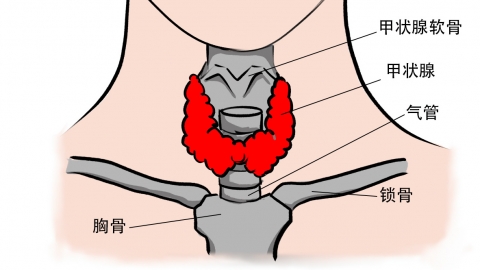Does thyroid ablation affect thyroid function?
In general, whether thyroid ablation affects thyroid function depends on the specific condition of the disease. If any discomfort occurs, it is recommended to seek medical attention promptly. The detailed analysis is as follows:

If the thyroid lesion is small in size, limited in number, and located at the peripheral region of the thyroid, the ablation treatment targets only the lesion tissue without significantly damaging normal thyroid tissue. In such cases, thyroid function usually remains unaffected after surgery. The remaining healthy thyroid tissue can maintain normal hormone secretion to meet the body's physiological needs, and patients typically do not require additional thyroid hormone supplementation—regular follow-up examinations are sufficient.
However, if the thyroid lesion is large, numerous, or located in the central region of the thyroid, the ablation may cover a larger area and potentially damage more normal thyroid tissue. A significant reduction in healthy tissue may lead to insufficient thyroid hormone production, resulting in postoperative hypothyroidism. In such cases, patients may need to take thyroid hormone replacement medication under a doctor’s guidance to maintain stable hormone levels.
After surgery, patients should follow their doctor’s instructions for regular复查 of thyroid function and thyroid ultrasound to monitor hormone levels and changes in the lesion. If symptoms such as fatigue, cold intolerance, or unexplained weight changes occur, prompt medical evaluation and adjustment of the treatment plan are necessary. In daily life, maintaining a regular作息, avoiding excessive fatigue, and consuming iodine appropriately in the diet are important—avoid both excessive iodine intake and unnecessary iodine restriction, and follow individualized dietary advice from your physician.







